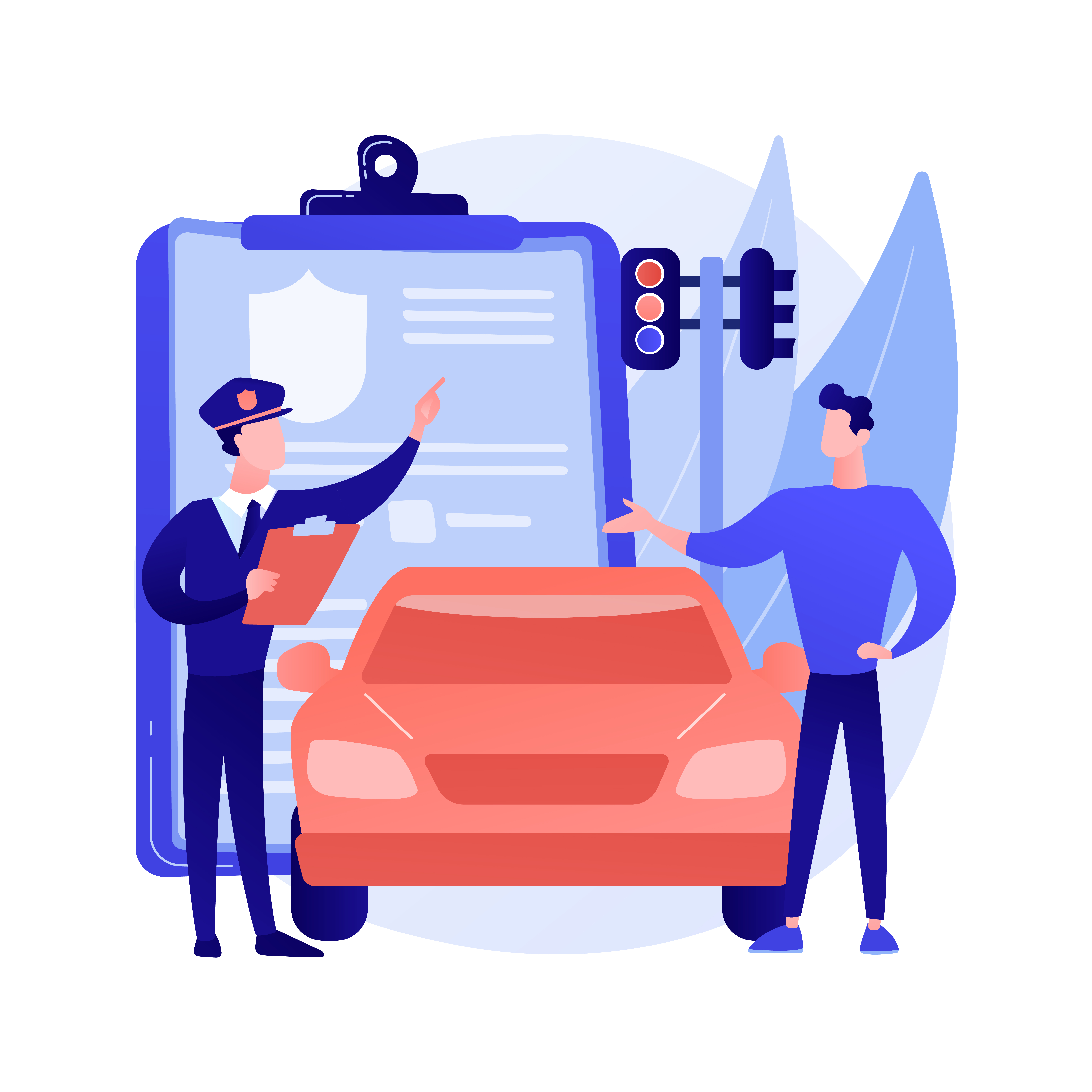September 25, 2021
either/view ⚖️
Road sense
To: either/view subscribers
KNOW YOUR RIGHTS – EDITION 8
Your Rights When A Traffic Police Pulls You Over

Good morning. Imagine that travel restrictions have been lifted and you’re finally getting the chance to take a road trip with your friends. On the day of the trip, you start from home early, in an excited daze, so you can pick your friends up BUT at the very first signal, you get pulled over by a traffic policeman. You’re internally grumbling because you’re going to be late now, but you’re also a little worried about why you’ve been stopped.
The first thing to remember in this situation is to stay calm. Sometimes, it’s just a random routine check undertaken by the traffic police to ensure safety and adherence to the law. That being said, as a citizen of a democracy, you do have certain rights in case you find yourself pulled over by a cop.
Let’s see what they are:
- Asking for identification – If you’re asked to display your car documents or your license, you need not do so immediately. You can first ask the police officer for their ID card and choose to show them your documents after you have proof of their identity as police personnel.
- Requesting a receipt – Let’s say you’ve been accused of a minor offence like speeding, and the police officer confiscates your license or your car documents. You can and must ask for a receipt that has been issued by the Traffic Police Department as it will stand as evidence when you visit the police station to retrieve the confiscated material.
- Filing a complaint if harassed – You haven’t flouted a rule, and you’re being polite with the officer. But the police officer is being rude or mistreating you. What do you do? Don’t be afraid to file a complaint against them at the nearest police station or online. It is well within your right to report the incident and have the authorities look into it. Remember, your complaint could prevent such harassment from taking place in the future.
- Preventing your vehicle from being towed – Towing away an empty vehicle for legal reasons is one thing, but did you know that there are strict rules against lifting an occupied vehicle for tow? If there’s even one person sitting inside the vehicle, there can be no attempt to tow it away as it is against the law.
- Reporting the use of force – Under no circumstances can a police officer force you to hand over your document, or get out of your vehicle against your wish (force can be either physical or verbal). If you are threatened or the officer tries to take your car key out of the ignition, make sure you stand your ground as it is your right. If you’re alone in the vehicle, try and call someone you know who might be close by and in a position to help you. You can even ask a pedestrian to help you manage the situation.
- Acceptance & payment of a challan – If you’ve been pulled over for breaking a red light or exceeding the speed limit, you’ll likely be issued a challan with a fine to pay. In case the concerned officer does not have a government-issued challan book or an electronic challan machine, you have the right to refuse the challan.
One of the key things to remember when driving somewhere is, always carry your license with you. Whether you’re driving your own vehicle or someone else’s, ensure that you have your driving license on you in case you are required to display it because not being able to produce it to a traffic cop will put you through unnecessary hassle.
Exceptions to the Right:
There are certain cases when a traffic police officer retains the right to arrest a vehicle driver without a warrant. These are specifically keeping in mind the legalities established by the Indian Constitution. Here are a few circumstances when arrest without warrant is allowed:
- Drunk driving – If a driver is intoxicated and manning a vehicle
- Offense – If the person is recognised to have committed a cognizable offence or is suspected of being involved in criminal activity
- Not wearing a helmet/seatbelt – Two-wheeler riders without a helmet and four-wheeler drivers not wearing a seatbelt can be immediately counted as offenders
- Invalidated Possession – If the person is in possession of suspected stolen property
- Obstruction – When a person doesn’t allow a police officer to do their duty or tries to escape from custody when they’re held on the basis of a well-formed suspicion
- Insurance – If your vehicle is uninsured or you’ve been temporarily barred from driving and yet are behind the wheel
Be a conscious driver and passenger. It’s a simple way to ensure the safety of your own and others’ lives. You’ve got your rights in place, so there’s nothing to worry about as long as you keep your end of the bargain and drive with care.

